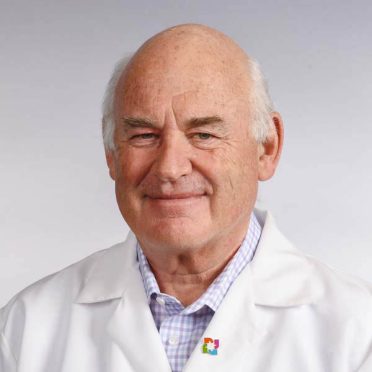Research holds great promise for anyone experiencing Huntington’s Disease or carrying the gene known to cause it.
Named after the doctor who discovered it in the late 19th century, Huntington’s Disease (HD) is an inherited and progressive neurological disorder caused by the degeneration of nerve cells in specific areas of the brain.
According to James Duffy, MD, FANA, FAAHPM, a neuropsychiatrist with the Chase Family Movement Disorders Center, part of the Hartford HealthCare Ayer Neuroscience Institute, HD “is what we call an autosomal dominant disorder. In order to develop the disorder, you need to inherit the gene from just one parent.”
Clinical symptoms most commonly associated with HD include writhing, brief jerking movements and difficulty with walking and fine motor skills. However, people with HD can also experience changes in their personality, poor impulse control and a decline in cognitive insight and planning.
“The disease may eventually impact every aspect of who we are – how we relate to others socially, how we maintain relationships and how we stay in jobs,” Dr. Duffy said.
He works on the team at Chase Family Movement Disorders Center to help patients and families coping as they navigate the challenges created by the changes of HD. The team approach – which includes neurologists, psychiatrists, neurospsychologists, social workers and genetic counselors – focuses on minimizing the disease’s effect on the person’s life and not just treating the movement disruptions.
“It takes a team to help these families as they travel the journey of HD,” Dr. Duffy admitted.
Typically, symptoms of Huntington’s develop in a person’s 50s or 60s, depending on how abnormal their gene is. Genetic testing can identify those who carry the HD gene. However, it is important that people at risk for inheriting the gene work with a multidisciplinary team that includes a genetic counselor, social worker and physician with experience in HD, Dr. Duffy noted.
“Families have been carrying the burden and stigma of HD for generations. Our job as their clinical team is to make sure they receive accurate and compassionate care. We may not yet have a cure, but there are always things we can do to address our patient’s suffering, and hopefully slow down the progression of the disease,” Dr. Duffy said.
Treatment for people with HD may include medications, specific diets, supplements and lifestyle changes such incorporating regular mild exercise, healthy sleep habits and physical therapy, trying individual and/or family therapy, and avoiding alcohol.
“The gene is your vulnerability, but not necessarily your destiny,” Dr. Duffy noted. “There have recently been important breakthroughs in our understanding of the biological mechanism of HD. Hopefully, these findings will soon generate new treatments that can transform the lives of people carrying the HD gene.”



